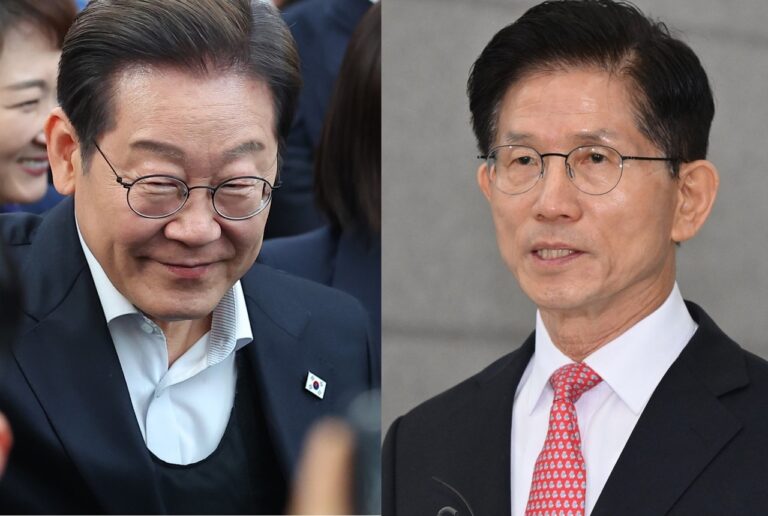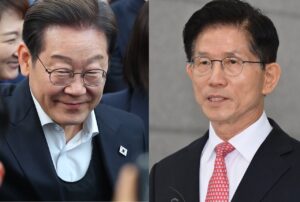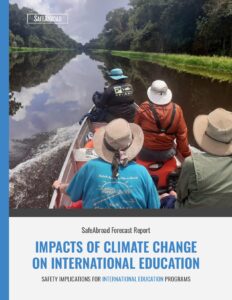Overview
South Korea is navigating a period of significant political turbulence following the impeachment of President Yoon Suk-yeol. The upcoming presidential election on June 3, 2025, has intensified political polarization and public unrest. Despite these challenges, South Korea remains a relatively low-risk destination for international education programs, though students should exercise caution leading up to and in the aftermath of the presidential election.
Key Takeaways
- The impeachment of President Yoon Suk-yeol has led to widespread protests and political division. This significant political event has disrupted the country’s stability by fueling mass protests and political division between supporters and opponents.
- The political environment is highly polarized as the country prepares for the presidential election. The two main candidates, Lee Jae-myung and Kim Moon-soo, represent starkly different political ideologies, contributing to the heightened tensions.
- Heightened security measures and localized disruptions may affect traveler mobility and program operations during and following the election period. Travelers may face transit delays, temporary road closures, increased police presence near polling stations and protest sites, and restricted access to areas central to political gatherings.
Background
On December 3, 2024, President Yoon Suk-yeol declared martial law during a televised address, accusing the Democratic Party (DPK) of conducting “anti-state activities” and collaborating with North Korea. This declaration suspended free press and prohibited political activities, including gatherings of the National Assembly, South Korea’s national legislature.
The martial law declaration was met with immediate opposition from both the DPK and Yoon’s own People Power Party (PPP), leading to widespread protests. By 4:30 AM on December 4, the National Assembly had convened and unanimously voted to lift martial law, despite attempts by military forces to prevent the vote.
Following the lifting of martial law, the political situation remained tense. Impeachment proceedings were led by opposition parties in the National Assembly, with the first impeachment vote taking place on December 7. This vote against Yoon narrowly failed due to a boycott by PPP representatives. However, on December 14, a second impeachment motion passed with 204 votes, stripping Yoon of his powers and appointing Prime Minister Han Duck-soo as Acting President.
After the National Assembly’s impeachment of Yoon, the Constitutional Court had to decide whether or not it would uphold the impeachment motion. Deliberations began on December 16, 2024, and Yoon was issued an arrest warrant on December 31 for charges of rebellion and abuse of power. Amidst multiple Constitutional Court hearings and Yoon’s detention, public outcry was rampant and the political climate remained volatile. Unrest was further exacerbated following the impeachment of former Acting President Han Duck-soo on December 27, 2024, after only two weeks in power. Han would later be restored to power by the Constitutional Court and would again serve as Acting President from March 24 to May 1, 2025.
On April 4, 2025, the Constitutional Court unanimously upheld the impeachment in an 8–0 decision, officially removing Yoon from office. This decision led to widespread protests nationwide, with supporters of Yoon expressing outrage and opponents celebrating the court’s decision. Following Han Duck-soo’s May 1 resignation, the country experienced additional turmoil as Han’s replacement, Choi Sang-mok, resigned due to an impeachment vote against him prior to his first day in office. Lee Ju-ho became the country’s fourth acting president in less than five months. Lee has served as Acting President since.
Current Political Environment
South Korea is entering a pivotal electoral period marked by deep ideological divides and uncertainty following months of political upheaval. The two main candidates are Lee Jae-myung from the Democratic Party of Korea (DPK) and Kim Moon-soo from the People Power Party (PPP).
- Lee Jae-myung: Lee is the leader of the Democratic Party of Korea and a former governor of Gyeonggi Province. He is known for his progressive policies and strong stance on social welfare and political accountability. Despite facing multiple legal challenges, including accusations of violating election laws and perjury, Lee remains the frontrunner in the polls.
- Kim Moon-soo: Kim is a former labor minister under the Yoon Suk-yeol administration and has been officially registered as the PPP’s presidential candidate after a contentious nomination process. Kim has faced internal party strife and pressure to step aside for former Prime Minister Han Duck-soo, but he has managed to secure the nomination. Kim’s platform focuses on conservative values, increased defense spending, and a hard-line approach to North Korea.
The tension between Lee Jae-myung and Kim Moon-soo supporters is palpable, as both candidates represent starkly different political ideologies. Lee’s progressive stance on social welfare and the country’s relationship with North Korea contrasts sharply with Kim’s conservative approach and emphasis on national security.
This ideological divide has fueled public demonstrations, with supporters of each candidate taking to the streets to protest. The contentious nature of the election, coupled with the political upheaval caused by Yoon’s impeachment process, has increased the likelihood of civil unrest as the election date approaches.
On The Horizon
Overall, South Korea remains a safe destination for student travelers; however, the rise in large-scale protests and heightened political polarization present a moderate level of risk.
What to watch for in 2025:
- Large-scale protests will likely persist for the upcoming months. Although the impeachment verdict has been released, the political climate remains deeply polarized. Far-right groups continue to pose a risk of violent demonstrations, as evidenced on January 19, 2025, when activists stormed a court in Seoul following the announcement that President Yoon Suk Yeol’s detention would be extended.
- In the weeks leading up to the election, the political climate is expected to remain highly charged. Campaign activities will likely intensify, with both political parties holding rallies and public events. Travelers should be particularly cautious around campaign events and avoid large gatherings to minimize risks. Key areas such as Gwanghwamun, Anguk, Gongdeok, Yeouido, and Jongno are central to political gatherings and may experience transportation delays and restricted access.
- Heightened security measures are expected during the election period. The government has declared a Gapho level emergency for June 3, during which the nation’s entire police force will be mobilized. The security personnel assigned to each candidate has also been significantly increased compared to the previous election. Increased police presence and crowd control operations may limit access to public spaces and government buildings. Travelers should stay informed through local news and follow safety guidelines provided by their institutions.
- Localized disruptions are likely to continue in the lead-up to and following the elections. Transit delays, rerouted bus lines, and temporary closures of metro stations are possible during and following the election. Various subway stations—including Gwanghwamun Station (Line 5), Anguk Station (Line 3), and Jongno 3-ga Station (Lines 1, 3, and 5)—experienced temporary closures or bypasses during the impeachment period due to protests and crowd control measures.. Universities and study abroad programs may need to adjust academic schedules and implement contingency plans to ensure traveler safety.
| Timeline | |
| December 3-4, 2024 | President Yoon Suk-yeol declares martial law, accusing the Democratic Party of an “attack on the constitutional order”. |
| December 4, 2024 | Martial law is lifted following a 190-0 vote by the National Assembly. |
| December 7, 2024 | The first impeachment vote against Yoon narrowly fails. |
| December 12, 2024 | Yoon addresses the public, defending his declaration of martial law. |
| December 14, 2024 | The second impeachment motion passes, stripping Yoon of his powers. |
| December 16, 2024 | The Constitutional Court holds its first meeting over Yoon’s impeachment. |
| December 31, 2024 | An arrest warrant is issued for Yoon on rebellion and abuse of power charges. |
| January 14, 2025 | The first formal hearing of Yoon’s impeachment trial takes place. |
| January 15, 2025 | Yoon is detained by the Corruption Investigation Office for High-ranking Officials. |
| January 16, 2025 | The second hearing of Yoon’s impeachment trial takes place. |
| January 21, 2025 | The third hearing of Yoon’s impeachment trial takes place. Yoon appears at the trial for the first time. |
| January 26, 2025 | Prosecutors indict Yoon on the charge of leading an insurrection. |
| February 25, 2025 | The final hearing of Yoon’s impeachment trial takes place. |
| April 4, 2025 | The Constitutional Court unanimously upholds the impeachment, removing Yoon from office. |
| May 5, 2025 | Kim Moon-soo is elected as the PPP’s presidential candidate. |
| May 8, 2025 | The Seoul High Court postpones Lee Jae-myung’s trial until after the June 3 election. |
| Not an exhaustive list. | |





